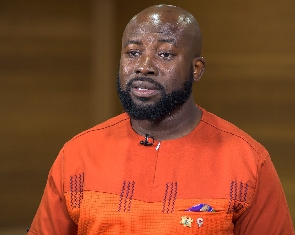-Way Forward from 2013 – Part 1
By Kwesi Atta Sakyi
4th April 2012
The Webster New World College Dictionary and Collins Dictionary, define curriculum as the set of different courses of study that are collectively taught and are required to earn a graduation or diploma from a school, college or university. We can have separate curriculum for each subject, such as a mathematics curriculum. A compendium of different courses studied in an institution forms the curricula. Part 4 of these series of 5 is the crux of the series as it is the new roadmap which I profer. This new curriculum should be exhaustive, modern, labour-market oriented, and it should reflect both local and global demand perspectives. This is because, we live in a globalised world where our educational system should be universally aligned because many foreign nationals relocate to Ghana and they bring their children along. Some stay for a few years and relocate again. Not all of them are wealthy enough to place their kids in international schools or high-fee paying private schools. Thus, apart from meeting our own local needs, we should also meet global needs because we are signatories to many UN, AU and ECOWAS conventions and protocols. I think to reform education in Ghana, we should re-examine the Education Act 1960, the 1966 Addis Ababa Resolution on Education, and the Dakar Conference of 2000, as well as the Beijing Conference on Women in 1995. We also need to revisit the UN’s Universal Declaration of Human Rights, 1948.
In these series of 5 articles, I propose to make suggestions which I hope will inform curriculum reviewers, reformers and educational policy makers in Ghana to help chart the way forward, come 2013. The year 2013 will be a watershed in our educational planning calendar, as current JHS and SHS systems would have clocked 26 years. Whoever wins the 2012 elections in December 2012, will be called upon to meet the enormous challenges facing our limping educational system, from the primary level to the junior and senior secondary schools level. Many critics have poured scorn on the current JHS and SHS systems, which were formerly called JSS and SSS respectively. Some of our current junior and senior secondary schools are thought to be shells of their former glories. In the private secondary schools where parents and guardians are paying heavy amounts of money, conditions of learning are not all that appalling. It is in some of the public, community and council schools that we find sorry sights of neglected and dilapidated infrastructure and paucity of instructional materials. It will be better to re-engage the churches, missionaries, NGOs, business houses and District Assemblies to join with the central government to put our house in order, through properly coordinated schemes such as Public-Private-Partnerships (PPP), Build, Operate, Transfer (BOT) and other laudable schemes. All these mean a reform of the Educational Act. It will also be instructive to revisit the recommendations made by various Educational Commissions set up in the past, such as Dzobo Commission, Evans Anfom Commission, Anamuah-Mensah Commission, among others. Where teachers are available in some of these constrained schools, they may be few or heavily saddled with loads of work due to high teacher-pupil ratios. Some of our JHSs and SHSs have become laughing stock and caricatures because of enormous deficiencies in them. School inspections are few and far in between. Where inspections are carried out, there may be some aspects of corruption and lack of follow-ups. Some inspectors lack transport. There are schools that are overcrowded, with little furniture, no writing materials, ripped off roofs, among many other challenges. Some schools serve as churches, as sometimes the head-teachers rent them out to churches to make extra money. This has increased the rate of vandalism of school property. In some villages, school buildings have become the haunts of hoodlums, the destitute and love nests for love-making rendezvous.
Our current secondary school curriculum came into force in 1987, when the JSS started. The last batch wrote the Middle School Leaving Certificate (MSLC) and the Ordinary Level (O level) in 1990. Since then, the curriculum has undergone some radical changes, to make it home-crafted. The JHS and SHS syllabi (syllabuses) are very broad and loaded, such that the timeframe allocated to them are inadequate. It was thought then that the Ghanaian student spends too long a time in school before going to university, so an attempt should be made to truncate the system or abridge it. Whoever came up with that idea did a great service but then he did not look far beyond the scheme in terms of long term repercussions on the economy, and damage to our educational system. In the former system, education in secondary schools was heavily subsidised by the government and it was erroneously conjectured that the subsidy was benefitting a small section of the population. Now that the JHS and JHS came into force, the schools have been abandoned to merciless free market forces, with government attention solely focused on the primary schools. After 1987, all the Middle Schools in our former elementary school system automatically became JSS or JHS. This massification of secondary education has increased access to education, yet it has been done at the expense of quality, as quantity has gained an upper hand. It was thought that lengthening the number of years for the SHS programme would cost the central government prodigious and astronomical amounts, and our major external donors were not prepared to help us on that. Are we indeed a sovereign nation or we suffer from donor-capture, as they also suffer from donor fatigue? How free are we to drive our own systems to our own set preferences? At the time the JSS and SSS system was introduced in 1987, it was touted as an innovation that would switch us away from examination-centred and bookish learning approaches so that we produce employable graduates. The objective then seemed noble as it was ostensibly to wean our students away from the Eurocentric or Western-centred education, and make our students Afrocentric or Ghanocentric. In this day and age of globalisation, who would follow such a narrow educational path? Had the Chinese or Indians followed such a path, where would they have been now in this digital age? The aim of the JSS/SSS was to impart life skills or practical skills which would make our students self-sufficient and entrepreneurial. It was also to make them have a broad education which would make them open-minded, functional, critical, independent and employable, as they would be able to think on their feet. We should ask that after some 26 years, are these qualities abundantly manifested in our graduates? The failure rates at both JHS and SHS levels have been gargantuan, as evinced from the BECE and WASSCE results. It is estimated that 21% of SHS graduates gain admission to universities every year. In fact, in 1993 the first batch of SSS had a dismal pass rate of 3.9%. What a wastage and high rate of human attrition? The dropout rate has been high at the JHS level, more so among girls. The current unacceptable high levels of unemployment belie the worth of the current secondary education system in Ghana. However, one should not lose sight of the Structural Adjustment Programmes (SAP) and Heavily Indebted Poor Countries (HIPC) conditionalities which were imposed on Ghana and other poor countries by the World Bank and IMF as policy panacea for bringing us out of the woods, when we were facing chronic and fundamental balance of payments disequilibrium, as well as unsustainable internal budget deficits in the 80s and 90s. We had an over-bloated civil service and our government had to shed some weight or downsize through massive retrenchment and restructuring. All these bitter pill economic prescriptions, derailed economic growth and stifled job vacancies in the public sector, and took a heavy toll on the Ghanaian economy. Thus, instead of the multiplier and accelerator combined effects lifting real GDP out of the trough of economic recession and depression, they sunk it. It was the proverbial analogy of the J-curve; it would get worse before it got better. These economic woes contributed in no small measure in negatively impacting on the delivery of quality education in Ghana. With the stringent economic straits in the 80s and 90s, we saw a mass exodus of trained and experienced teachers and professionals, who opted for greener pastures outside the shores of Ghana, leading to a heavy haemorrhage of trained teachers in our educational institutions. When the JSS and SSS system was rolled out and in motion, the government had to put in place emergency intervention programmes to train new teachers to fill the huge vacuum left by those who had emigrated. New classrooms and school infrastructure had to be provided in both the rural and urban areas. We commend our foreign donors and cooperating partners, particularly the World Bank, for funding most of those projects. The downside of this narration is that education delivery became too politicized for comfort. This is so because education is a merit good which, if left to market forces, would be underprovided and under-consumed and it has multiplier effects on the economy, short, medium and long term. I think what we need to do in Ghana is for our politicians to agree on a long term education master plan, which will be honoured and implemented by all, irrespective of political leanings or coloration, so that whichever party is in power, will be bound to honour its implementation. If there could be differences in the interventions, it could be in the approaches and ideologies. It is patently clear that both the NDC and the NPP subscribe to universal free education, as per the 8 UN Millennium Development Goals (MDGs) set in 2000 for maturation in the year 2015. Ghana is said to have done well on some of these goals, especially school feeding programme and other poverty reduction interventions. However, on the other indicators on the Quality of Working Life (QWL) such as access to reliable potable water, electricity and medical care for pregnant women, I think the indicators are not so good. It has been empirically proved that education is the only effective vehicle for achieving vertical and horizontal social equity. I have always posited many times in this forum that the bane of our African countries in service delivery is the over-centralised and highly institutionalised bureaucracy in our countries. This has heightened corruption and denied sustainability and self-sufficiency in our local and district assemblies (councils). When all the sources of revenue in a country are captured and controlled by the central government in Accra, how do we expect the ward councilor or MP in Kotokoraba in Cape Coast, or the one in Town Council Lane in Accra, or Esereso in Kumasi, or Esikafoambantsem in Takoradi to provide quality service in their respective constituencies or wards? If you went to a borough in London or prefecture in Japan, you would find that service delivery at the grassroot is smooth-sailing, because local governments are empowered and autonomous to generate their own revenues for development projects. It is constitutionally granted that we are a unitary state, yet we need to create political space for our local governments to perform optimally, to complement central government efforts. Britain and Japan which have been cited here, are bona fide unitary states, yet there is proper decentralised authority and devolution of powers to the constituent parts to play their roles efficiently and effectively at the grassroot.
Besides, because of high levels of transparency and accountability in those advanced economies, revenues released from central government via grants and subsidies are fully and properly utilised for the benefit of the people. Local governments in these advanced economies plan activity-based budgets, and they present them for funding. There is a high degree of functional decentralisation. In Ghana, only lip service has been paid to the decentralisation process. Ghana has of course made some progress, relative to some African countries, yet we have a long way to go. Some MPs do not properly account for the use of Constituency Development Funds. Besides, the funds have many competing uses and may be paltry or like a drop in the ocean. In management theory, there is the concept of subsidiarity, whereby the grassroots know their needs better and they should not be planned for by someone far removed from them at the central government level. Delegation of authority should not only be sufficient but also it should be accompanied by adequate resources. This is why we need a radical review of our 1992 national constitution which has been overtaken by events and it has become anachronistic and moribund. Currently, we have in Ghana a situation of Executive capture, Legislative paralysis, and Judicial commercial elephantiasis. The Executive powers are far too enormous and they dominate and overshadow the other stakeholders and players. The Legislature is not moving forward because of over-politicking, while the independent Judiciary has become cancerous, tumorous and overly corrupt. Thus, we need a radical reform of our three arms of government in order to achieve our collective goals as a nation. I cannot wait to see President Atta Mills initiative to reform the constitution, which must be taken to the hilt to address some of the critical issues crying for urgent attention. In Part 2 of these series, I will give you a lowdown, down memory lane, on some of the challenges of being a teacher in some remote corners of Ghana. This will be instructive in my analysis on the way forward for a reform of our secondary schools in Ghana. Many are the Ghanaians who have not served time working in some of our challenging backwoods or outback or rural setting. Part 4 will be the icing on the cake, as it will be the technical part, outlining my proposed curriculum for the secondary schools in Ghana, come 2013.
Stay blessed.
Opinions of Thursday, 12 April 2012
Columnist: Sakyi, Kwesi Atta














